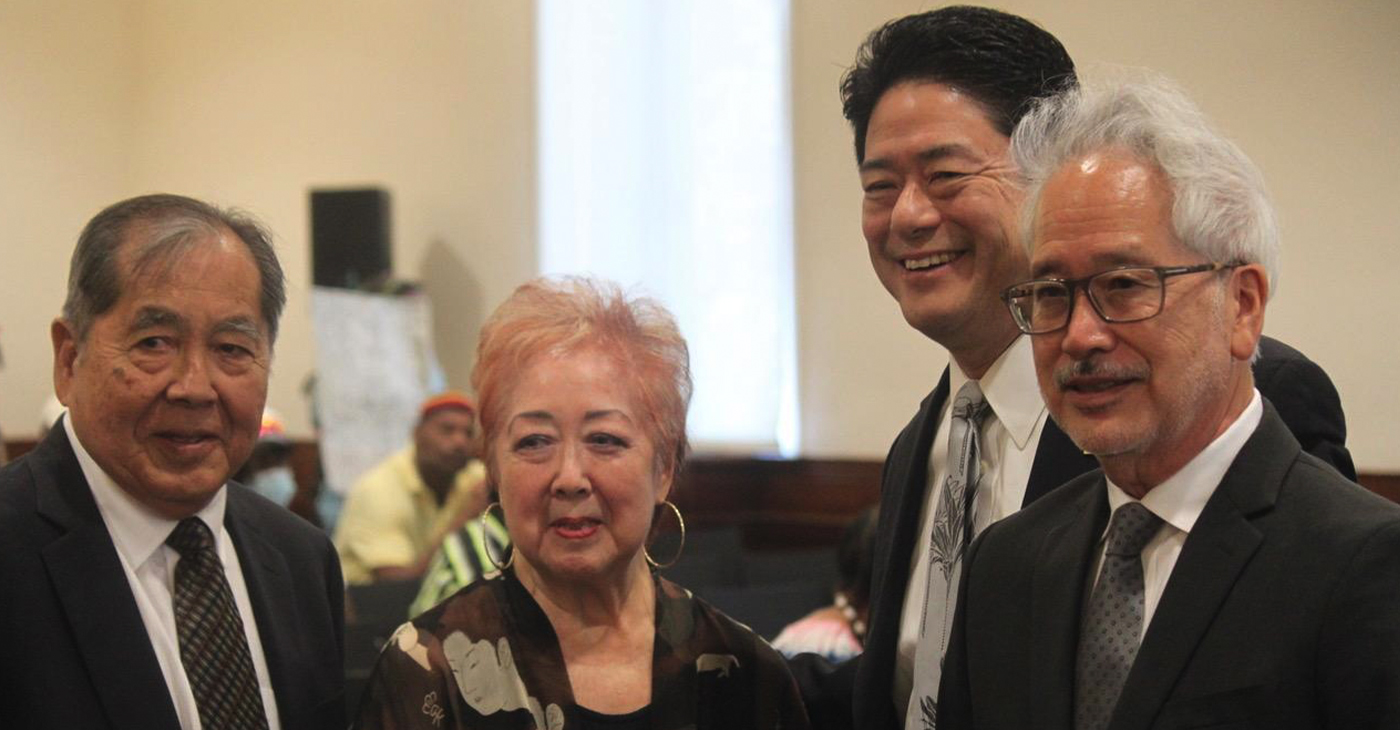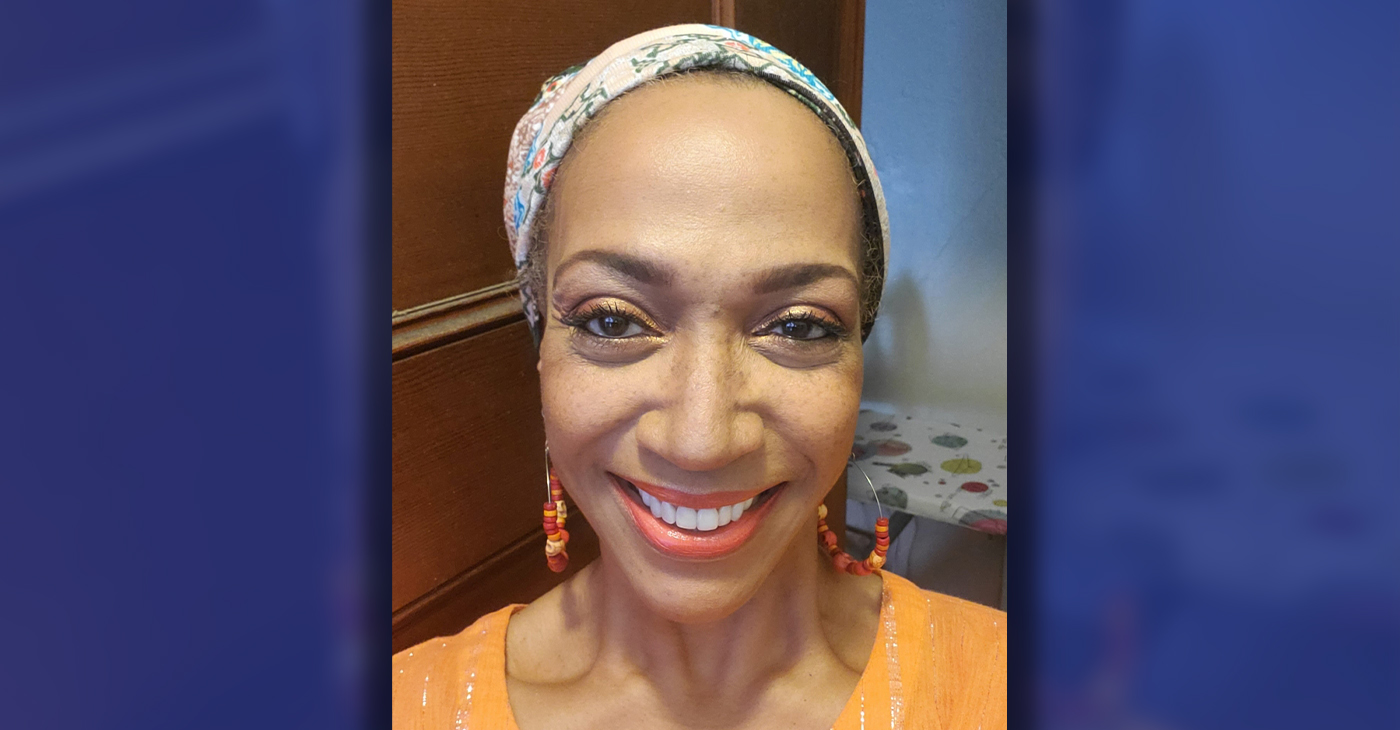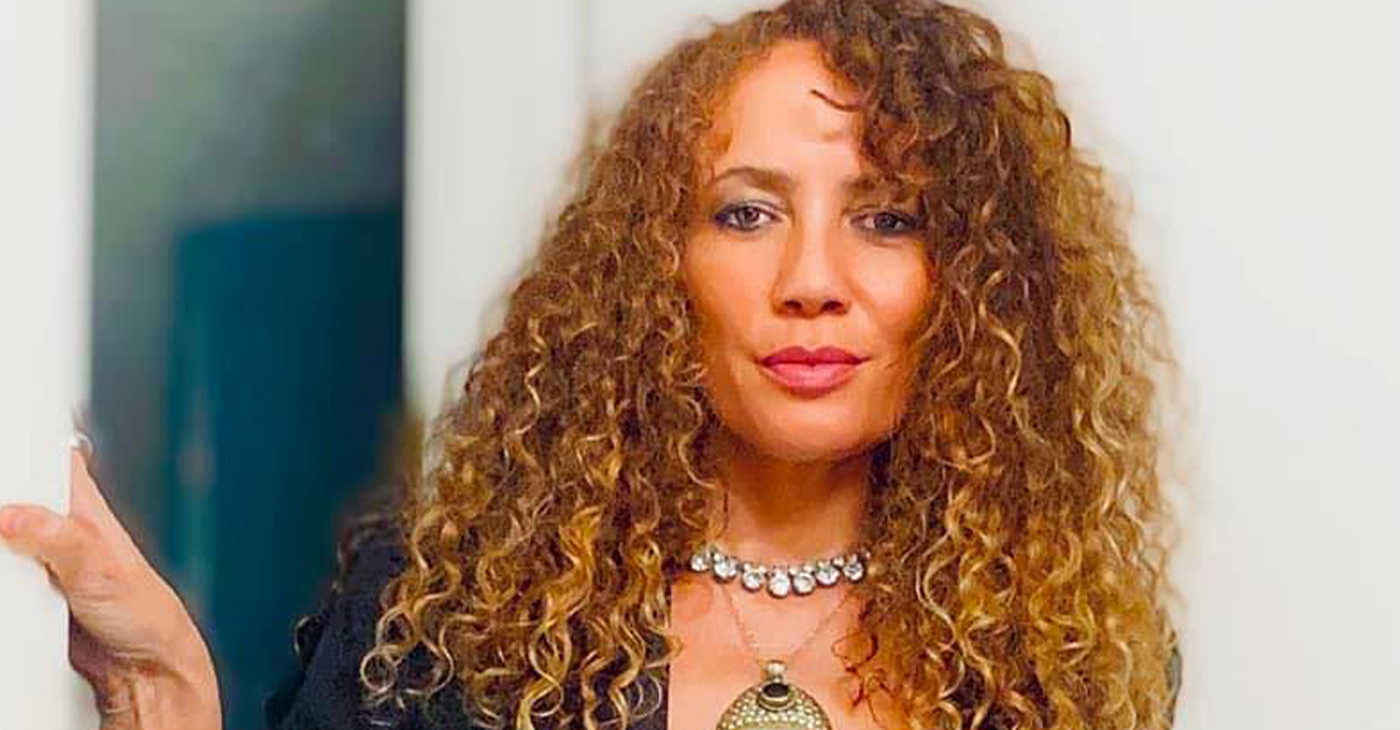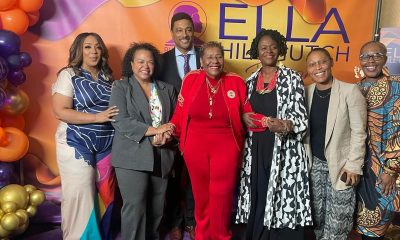Activism
Growing Number of California Groups Express Support for Black Reparations
In California, an increasing number of Japanese, Jewish and other non-Black groups are expressing their support for reparations to Black American residents of the state who are descendants of enslaved people. Around 100 grassroot organizations, motivated in part by the efforts of the Japanese American Bar Association and John M. Langston Bar Association of Los Angeles, have endorsed the work of the task force, and are calling on California to compensate Black residents for historical wrongdoings.

By Antonio Ray Harvey
California Black Media
In California, an increasing number of Japanese, Jewish and other non-Black groups are expressing their support for reparations to Black American residents of the state who are descendants of enslaved people.
Around 100 grassroot organizations, motivated in part by the efforts of the Japanese American Bar Association and John M. Langston Bar Association of Los Angeles, have endorsed the work of the task force, and are calling on California to compensate Black residents for historical wrongdoings.
Donald Tamaki, an attorney, and the only non-Black member of the nine-member state reparations task force panel, stated that the groups supporting the task force are mostly Asian, Latino and Jewish.
“They didn’t need a whole lot of persuasion,” Tamaki said. “Why? Because they know the healing power of reparations. I think that, in itself, is a news story: that there’s a multi-racial group of both big and small organizations representing different constituencies.”
The United States government has previously approved reparations for other ethnic groups to address historical injustices.
For instance, Native Americans have been given billions of dollars in compensation for land that was unlawfully taken from them. Japanese Americans received billions in compensation and some of their property was returned for being placed in internment camps during World War II.
Many of the injustices experienced by Japanese Americans occurred after President Franklin D. Roosevelt’s issued Executive Order 9066 on Feb. 19, 1942, responding to Japan’s aerial bombing of U.S. Military installations at Pearl Harbor, Hawaii on Dec.7, 1941.
In the months following the bombing of Pearl Harbor, approximately 122,000 men, women, and children of Japanese descent were forcibly relocated to “assembly centers.”
Nearly 70,000 of these evacuees were American citizens. They were then evacuated to and confined in 75 isolated, fenced, and guarded “relocation centers,” known as “incarceration camps.”
According to the National Park Service (NPS), 92,785 Californians of Japanese descent were put in temporary detention camps called “Assembly Centers.” The cities of Sacramento, Los Angeles, Oakland, and San Francisco, were metropolitan cities with the largest Japanese contingents, who were incarcerated without legal recourse.
Japanese Americans were imprisoned based on ancestry alone. There was no evidence that they had committed any crimes against the U.S. or presented any danger, NPS explained in its “A History of Japanese Americans in California: Incarceration of Japanese Americans During World War II.”
Three Japanese Americans who were involved in and knowledgeable about the Japanese American Redress Movement (JARM) testified at the California reparations task force’s public meeting held in Los Angeles on Sept. 24, 2022. They educated attendees about efforts Japanese Americans made to obtain restitution for their forced removal and confinement during World War II.
Mitchell Maki (president and CEO of the Go for Broke National Education Center, a non-profit organization dedicated to preserving the legacy and lessons of the Nisei World War II veterans) and Ron Wakabayashi (former executive director of the Japanese American Citizens League) provided historical context on how Japanese Americans achieved a rare accomplishment in U.S. history by passing the Civil Liberties Act of 1988.
They received an official apology letter from the President of the United States and 82,000 surviving Japanese Americans were compensated with $20,000 payments, which totaled $1.6 billion. Executive Order 9066 was officially rescinded by U.S. President Gerald Ford on Feb. 16, 1976.
Miya Iwataki – a special assistant to former California Legislative Black Caucus (CLBC) member and U.S. Congressmember Mervyn Dymally who represented the state’s 31st District in Congress during the 1980s – was a member of the National Coalition for Redress/Reparations for Japanese Americans.
Iwataki says she drew inspiration from the activism of Black leaders like Dr. Martin Luther King Jr., Black Panther Party member Fred Hampton, the Tuskegee Airmen, the Brown Berets, among others.
She explained that it was Black leaders such as Dymally and former Oakland mayor and U.S. Congress member Ron Dellums who supported the passage of the Civil Liberties Act.
Maki, Iwataki, Wakabayashi and other Nisei (second-generations Japanese Americans) and Sansei (third generation) are urging the state to compensate Black descendants of chattel slavery and provide a formal apology for harms suffered in California.
“First, I want to acknowledge the difference in our fight for reparations for the injustice of the (incarceration) camps and the 400 years history of enslaved people,” Iwataki testified. “We’re not here to make recommendations or to prescribe lessons learned. I am here to share the experiences of NCRR and all volunteer grassroot organizations that fought for reparations and to express our continued solidarity for Black reparations.”
In September 2022, the San Francisco Black and Jewish Unity Coalition held reparations teach-ins at Congregation Sherith Israel in San Francisco.
Secretary of State Shirley Weber, who authored the legislation, Assembly Bill 3121, that created the task force when she was an Assemblymember, was one of the speakers.
Congregation B’nai Israel hosted a 90-minute reparations information session in Sacramento on June 11. Presented by Sacramento Jewish opera singer Lynn Berkeley-Baskin, over 20 people – Jewish and Japanese — attended the event to hear Chris Lodgson from the Coalition for a Just and Equitable California share his experiences as one of the grassroots leaders driving California’s movement for reparations.
Germany has openly acknowledged past aggressions committed during the Holocaust. According to a June 2021 report by Steven J. Ross in the Jewish publication the Forward, the German government has paid out $92 billion to Holocaust survivors over seven decades.
In the United States, the country has “failed to reckon with the consequences of centuries of slavery,” Ross writes.
“As laws advancing revisionist history sweep our nation’s state legislatures, Americans who favor a national reckoning with our own complicated past would do well to take a lesson from Germany,” writes Steven J. Ross, a history professor at the University of Southern California (USC).
“If we want to truly heal as a nation, we must first acknowledge both the long history of slavery and the pain its legacy still causes – and take tangible steps to right our collective wrongs,” Ross stated.
The task force will hold its final meeting and submit its final report to the California Legislature on June 29.
The meeting will start at 9:00 a.m., in the First Floor Auditorium of the March Fong Eu Secretary of State Building, located at 1500 11th Street, downtown Sacramento.
“If there are helpful takeaways from our experience, I hope that they will contribute,” Wakabayashi said of Japanese Americans’ fight for reparations. “It would help repay a great debt. The Black civil rights movement generated the Japanese American Redress Campaign and led the struggle for human rights in this country.
Activism
Books for Ghana
We effectively facilitated cross-continent community building! We met the call and provided 400 books for ASC’s students at the call of the Minister of Education. We supported the work of a new African writer whose breakout novel is an action-packed depiction of a young woman steeped in Ghanaian culture who travels to the USA for college, all the while experiencing the twists, turns, and uncertainties that life brings.

By Min. Rauna Thurston, Chief Mpuntuhene Afua Ewusiwa I
My travels to Afrika began in June 2022, on a tour led by Prof. Manu Ampim, Director of the organization Advancing The Research. I was scheduled to become an ordained Minister by Wo’se Community of the Sacred African Way. It was vital that my feet touch the soil of Kemet and my spirit connect with the continent’s people before ordination.
Since 2022, I’ve made six trips to Afrika. During my travels, I became a benefactor to Abeadze State College (ASC) in Abeadze Dominase, Ghana, originally founded by Daasebre Kwebu Ewusi VII, Paramount Chief of Abeadze Traditional Area and now run by the government. The students there were having trouble with English courses, which are mandatory. The Ghanaian Minister of Education endorsed a novel written by 18-year-old female Ghanaian first-time writer, Nhyira Esaaba Essel, titled Black Queen Sceptre. The idea was that if the students had something more interesting to read, it would evoke a passion for reading; this seemed reasonable to me. Offer students something exciting and imaginative, combined with instructors committed to their success and this could work.
The challenge is how to acquire 800 books?!
I was finishing another project for ASC, so my cash was thin and I was devoid of time to apply for annual grants. I sat on my porch in West Oakland, as I often do, when I’m feeling for and connecting to my ancestors. On quiet nights, I reminisce about the neighborhood I grew up in. Across the street from my house was the house that my Godfather, Baba Dr. Wade Nobles and family lived in, which later became The Institute for the Advanced Study of Black Family Life & Culture (IASBFLC). Then, it came to me…ancestors invited me to reach out to The Association of Black Psychologists – Bay Area Chapter (ABPsi-Bay Area)! It was a long shot but worth it!
I was granted an audience with the local ABPsi Board, who ultimately approved funding for the book project with a stipulation that the Board read the book and a request to subsequently offer input as to how the book would be implemented at ASC. In this moment, my memory jet set to my first ABPsi convention around 2002, while working for IASBFLC. Returning to the present, I thought, “They like to think because it feels good, and then, they talk about what to do about what they think about.” I’m doomed.
However, I came to understand why reading the book and offering suggestions for implementation were essential. In short: ABPsi is an organization that operates from the aspirational principles of Ma’at with aims of liberating the Afrikan Mind, empowering the Afrikan character, and enlivening: illuminating the Afrikan spirit. Their request resulted in a rollout of 400 books in a pair-share system. Students checked out books in pairs, thereby reducing our bottom line to half of the original cost because we purchased 50% fewer units. This nuance promoted an environment of Ujima (collective work & responsibility) and traditional Afrikan principles of cooperation and interdependence. The student’s collaborative approach encouraged shared responsibility, not only for the physical book but for each other’s success. This concept was Dr. Lawford Goddard’s, approved by the Board, with Dr. Patricia “Karabo” Nunley at the helm.
We effectively facilitated cross-continent community building! We met the call and provided 400 books for ASC’s students at the call of the Minister of Education. We supported the work of a new African writer whose breakout novel is an action-packed depiction of a young woman steeped in Ghanaian culture who travels to the USA for college, all the while experiencing the twists, turns, and uncertainties that life brings. (A collectible novel for all ages). A proposed future phase of this collaborative project is for ASC students to exchange reflective essays on Black Queen Sceptre with ABPsi Bay Area members.
We got into good trouble. To order Black Queen Sceptre, email esselewurama14@gmail.com.
I became an ordained Minister upon returning from my initial pilgrimage to Afrika. Who would have imagined that my travels to Afrika would culminate in me becoming a citizen of Sierra Leone and recently being named a Chief Mpuntuhene under Daasebre Kwebu Ewusi VII, Paramount Chief of Abeadze Traditional Area in Ghana, where I envision continued collaborations.
Min. Rauna/Chief Mpuntuhene is a member of ABPsi Bay Area, a healing resource committed to providing the Post Newspaper readership with monthly discussions about critical issues in Black Mental Health, Wealth & Wellness. Readers are welcome to join us at our monthly chapter meetings every 3rd Saturday via Zoom and contact us at bayareaabpsi@gmail.com.
Activism
2024 in Review: Seven Questions for Frontline Doulas
California Black Media (CBM) spoke with Frontline Doulas’ co-founder Khefri Riley. She reflected on Frontline’s accomplishments this year and the organization’s goals moving forward.

By Edward Henderson, California Black Media
Frontline Doulas provides African American families non-medical professional perinatal services at no cost.
This includes physical, emotional, informational, psychosocial and advocacy support during the pregnancy, childbirth and postpartum period. Women of all ages — with all forms of insurance — are accepted and encouraged to apply for services.
California Black Media (CBM) spoke with co-founder Khefri Riley. She reflected on Frontline’s accomplishments this year and the organization’s goals moving forward.
Responses have been edited for clarity and length.
Looking back at 2024, what stands out to you as your most important achievement and why?
In 2024, we are humbled to have been awarded the contract for the Los Angeles County Medical Doula Hub, which means that we are charged with creating a hub of connectivity and support for generating training and helping to create the new doula workforce for the medical doula benefit that went live in California on Jan. 1, 2023.
How did your leadership and investments contribute to improving the lives of Black Californians?
We believe that the revolution begins in the womb. What we mean by that is we have the potential and the ability to create intentional generational healing from the moment before a child was conceived, when a child was conceived, during this gestational time, and when a child is born.
And there’s a traditional saying in Indigenous communities that what we do now affects future generations going forward. So, the work that we do with birthing families, in particular Black birthing families, is to create powerful and healthy outcomes for the new generation so that we don’t have to replicate pain, fear, discrimination, or racism.
What frustrated you the most over the last year?
Working in reproductive justice often creates a heavy burden on the organization and the caregivers who deliver the services most needed to the communities. So, oftentimes, we’re advocating for those whose voices are silenced and erased, and you really have to be a warrior to stand strong and firm.
What inspired you the most over the last year?
My great-grandmother. My father was his grandmother’s midwife assistant when he was a young boy. I grew up with their medicine stories — the ways that they healed the community and were present to the community, even amidst Jim Crow.
What is one lesson you learned in 2024 that will inform your decision-making next year?
I find that you have to reach for your highest vision, and you have to stand firm in your value. You have to raise your voice, speak up and demand, and know your intrinsic value.
In a word, what is the biggest challenge Black Californians face?
Amplification. We cannot allow our voices to be silent.
What is the goal you want to achieve most in 2025?
I really would like to see a reduction in infant mortality and maternal mortality within our communities and witness this new birth worker force be supported and integrated into systems. So, that way, we fulfill our goal of healthy, unlimited birth in the Black community and indeed in all birthing communities in Los Angeles and California.
Activism
U.S. House Minority Leader Hakeem Jeffries Speaks on Democracy at Commonwealth Club
Based on his first speech as House minority leader, “The ABCs of Democracy” by Grand Central Publishing is an illustrated children’s book for people of all ages. Each letter contrasts what democracy is and isn’t, as in: “American Values over Autocracy”, “Benevolence over Bigotry” and “The Constitution over the Cult.”

By Linda Parker Pennington
Special to The Post
House Minority Leader Hakeem Jeffries addressed an enthusiastic overflow audience on Monday at San Francisco’s Commonwealth Club, launching his first book, “The ABCs of Democracy.”
Based on his first speech as House minority leader, “The ABCs of Democracy” by Grand Central Publishing is an illustrated children’s book for people of all ages.
Each letter contrasts what democracy is and isn’t, as in: “American Values over Autocracy”, “Benevolence over Bigotry” and “The Constitution over the Cult.”
Less than a month after the election that will return Donald Trump to the White House, Rep. Jeffries also gave a sobering assessment of what the Democrats learned.
“Our message just wasn’t connecting with the real struggles of the American people,” Jeffries said. “The party in power is the one that will always pay the price.”
On dealing with Trump, Jeffries warned, “We can’t fall into the trap of being outraged every day at what Trump does. That’s just part of his strategy. Remaining calm in the face of turmoil is a choice.”
He pointed out that the razor-thin margin that Republicans now hold in the House is the lowest since the Civil War.
Asked what the public can do, Jeffries spoke about the importance of being “appropriately engaged. Democracy is not on autopilot. It takes a citizenry to hold politicians accountable and a new generation of young people to come forward and serve in public office.”
With a Republican-led White House, Senate, House and Supreme Court, Democrats must “work to find bi-partisan common ground and push back against far-right extremism.”
He also described how he is shaping his own leadership style while his mentor, Speaker-Emeritus Nancy Pelosi, continues to represent San Francisco in Congress. “She says she is not hanging around to be like the mother-in-law in the kitchen, saying ‘my son likes his spaghetti sauce this way, not that way.’”
-

 California Black Media4 weeks ago
California Black Media4 weeks agoCalifornia to Offer $43.7 Million in Federal Grants to Combat Hate Crimes
-

 Black History4 weeks ago
Black History4 weeks agoEmeline King: A Trailblazer in the Automotive Industry
-

 California Black Media4 weeks ago
California Black Media4 weeks agoGov. Newsom Goes to Washington to Advocate for California Priorities
-

 Activism3 weeks ago
Activism3 weeks agoOakland Post: Week of November 27 – December 3, 2024
-

 California Black Media4 weeks ago
California Black Media4 weeks agoCalifornia Department of Aging Offers Free Resources for Family Caregivers in November
-

 Activism4 weeks ago
Activism4 weeks agoOCCUR Hosts “Faith Forward” Conference in Oakland
-

 Activism4 weeks ago
Activism4 weeks agoRichmond Seniors Still Having a Ball After 25 Years
-

 Activism2 weeks ago
Activism2 weeks agoButler, Lee Celebrate Passage of Bill to Honor Congresswoman Shirley Chisholm with Congressional Gold Medal




















































